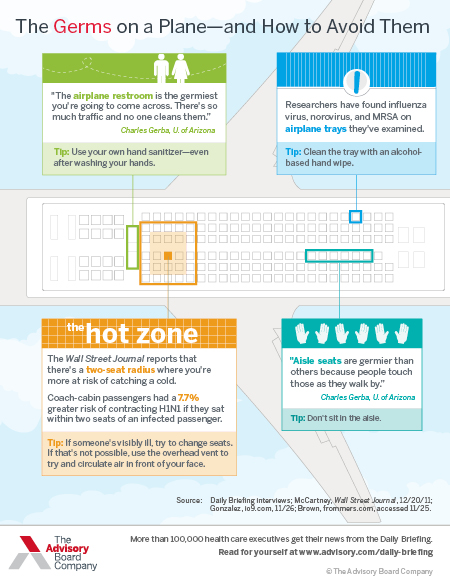Auto logout in seconds.
Continue LogoutPrevious research has indicated that man's best friend might be able to lend a hand in sniffing out, Clostridium difficile (C. diff), a common hospital infection, but a new study casts doubts on dogs' ability to consistently identify which patients are sick, Helen Branswell reports for STAT News.
C. diff is a leading cause of infections acquired in a health care setting, but it is often difficult to detect infection early on. The fastest way to test for C. diff infection is to send stool samples to a lab, a process that can take a day or two to get results, according to Branswell.
Dogs detect C. diff in hospitals around the world
To detect C. diff more quickly, doctors in the Netherlands and Canada have used the scent-sniffing power of dogs to detect the disease.
Infection control teams in each country trained dogs to use their sense of smell to discern stool infected with C. diff from normal human stool. However, in both cases, the research only recorded the capabilities of one dog, Branswell reports.
Researchers at Michael Garron Hospital in Toronto sought to determine canines' reliability once and for all by training two rescue dogs—Chase, a border collie, and Piper, a German shepherd—to sniff out C. diff infections and testing their abilities in a study.
For the study, researchers put human stool samples—some of which were contaminated with C. diff and some of which were not—onto sponges that were then placed in metal scent boxes. If the dogs were able to identify the positive sample with their sense of smell, they were rewarded.
"If [Chase and Piper] could tell somebody had C. diff without an actual stool specimen, that would have saved us an enormous amount of time," said Jeff Powis, senior author of the paper and medical director of infection prevention control at Michael Garron Hospital.
Findings
But, according to Branswell, the study findings revealed that dogs are not always dependable detectives.
When researchers compared Piper's and Chase's sniffing test results, the dogs often had conflicting responses. "They weren't always wrong the same way and they weren't always right the same way," said Powis.
One factor that interfered with the dogs' consistency was how easily they became distracted from their duties when they entered a patient's room. Chase and Piper became preoccupied with the food, the patients, and even the toilet bowls. "The dogs found it hard to pass a toilet without drinking out of it," Maureen Taylor, a physician assistant at Toronto's Michael Garron Hospital who led the new study, said.
According to Powis, the dogs were not reliable enough to be the C. diff detectors hospitals are looking for. "When I see that variability as a researcher or even as a clinician, it scares me as far as generalizability moving forward," said Powis. "From our assessment, we're stopping here."
Are some dogs better than others?
But experts said the results shouldn't be taken to mean dogs aren't capable of sniffing C. diff. Marije Bomers, who led the single-dog Dutch study on canine sniffers, said the Toronto research suggests that some dogs are better suited to this work than others. "This of course does not mean dogs in general are unable to detect C. difficile at the bedside," Bomers said, noting her team observed very accurate results in Cliff, the spaniel used in her study. She added, "This [new] study further illustrates that the capability of one dog cannot simply be extrapolated to other dogs, complicating practical implementation of C. diff sniffer dogs on a larger scale" (Branswell, STAT News, 8/22).
Sept. 27 webconference: What's new in chronic disease management?
Join this webconference to learn how provider organizations are scaling legacy approaches to chronic disease management for multi-morbid patients, while improving health outcomes and reducing utilization.
Don't miss out on the latest Advisory Board insights
Create your free account to access 1 resource, including the latest research and webinars.
Want access without creating an account?
You have 1 free members-only resource remaining this month.
1 free members-only resources remaining
1 free members-only resources remaining
You've reached your limit of free insights
Become a member to access all of Advisory Board's resources, events, and experts
Never miss out on the latest innovative health care content tailored to you.
Benefits include:
You've reached your limit of free insights
Become a member to access all of Advisory Board's resources, events, and experts
Never miss out on the latest innovative health care content tailored to you.
Benefits include:
This content is available through your Curated Research partnership with Advisory Board. Click on ‘view this resource’ to read the full piece
Email ask@advisory.com to learn more
Click on ‘Become a Member’ to learn about the benefits of a Full-Access partnership with Advisory Board
Never miss out on the latest innovative health care content tailored to you.
Benefits Include:
This is for members only. Learn more.
Click on ‘Become a Member’ to learn about the benefits of a Full-Access partnership with Advisory Board
Never miss out on the latest innovative health care content tailored to you.

